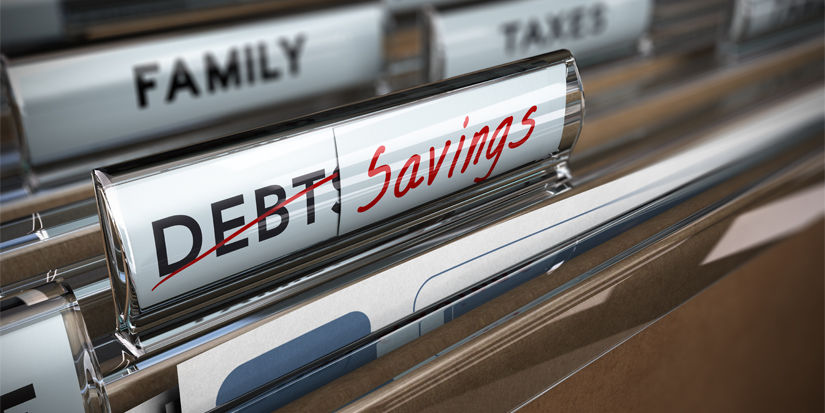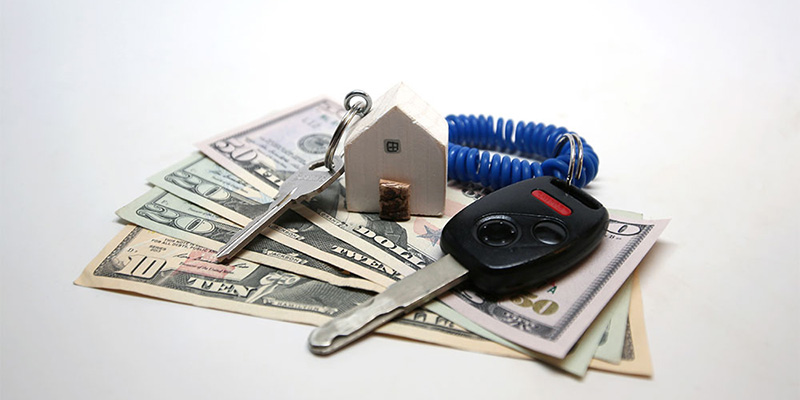
It Might Be a Bad Year
2024 might be a bad year. We might get a recession. We might get a bear market. We might get a housing collapse. We might get a war. We might get political turmoil. Actually, that is definitely going to happen.

New Year’s Resolutions, Etc.
Lots of people make plans to improve their financial lives in the new year. They generally fall into two categories:
-
Paying down a substantial amount of debt
-
Saving for a big purchase, like a car or going to school
Some people might also resolve to:
-
Get better at investing.
But nobody really gets better at investing. Your time is better spent on #1 and #2.
Debt and Pie
Let’s say you have $20,000 in credit card debt. You are paying about $4,000 a year on this balance (which is incredible). If you make $80,000 a year, you can easily clean this up. You can put aside 25% of your income to pay down debt. No problem. That is a very attainable financial goal within the span of a year. But if you had $40,000 in credit card debt, you couldn’t realistically pay this down in a year—you would have to do it over two years.
Some people get themselves in a big financial jam, like with six figures in credit card or other debt. Then they feel stuck—it will take a decade to pay this off. It is pretty close to checkmate. Well, there is a way out: You will have to make more money. Cutting expenses will only get you so far—you will have to increase the revenue side to get out of this debt.
The amazing thing is that this never occurs to people in this position. It never occurs to them to make more money. They will eat ramen noodles, turn off all the lights, and turn down the thermostat, but it won’t occur to people to get a second job, a third job, a higher-paying job, or start a business.
Instead of slicing and dicing the pie into smaller and smaller pieces, why not make more pie?
About five years ago, I saw a 60 Minutes episode on student loans, and it featured a woman who had over $300,000 in credit card debt, with not a lot to show for it. She had gotten a few third- and fourth-tier degrees, but they hadn’t increased her earnings potential at all, and her monthly payments—already lowered through the income-based repayment plan—were pretty much swallowing her entire income.
Bankruptcy wouldn’t have helped, as student loans cannot be discharged in bankruptcy. She was stuck. The only way out was to figure out a way to make significantly more money. It hadn’t occurred to her to do that.
Save First, Buy Later
As for saving up for big purchases, this is the right approach. Save first, buy later, rather than the other way around.
I want to buy a BMW X5. My Toyota Highlander has 110,000 miles on it, and it is a rattletrap. I have a high credit score, and I have capacity—I could easily go to the BMW dealership and finance the whole thing at a reasonable interest rate. But I don’t do that because it would be irresponsible.
The responsible thing to do is to save first and buy second. I have had a couple of car loans, and in the second case, I wish I didn’t. The interest I paid was a complete waste of money.
One caveat: The credit reporting agencies like it if you have some car credit outstanding. If you take out a car loan, and you pay it off, it will make your credit score go up. But think of it this way: If you are going to be paying $15,000 in interest to get your credit score up 20 points, is that really worth it? If your credit score is above 740, you don’t need to obsess over it.
Avoid Finance Charlatans
As far as getting better at investing goes, there’s a big marketplace full of books and newsletters and YouTube videos. But how do you know who is the real deal?
I can tell you that a lot of the stuff on YouTube is full of charlatans. I spend pretty much zero time looking for investing education on YouTube. And just because someone has written a book, well, there are bad books written all the time.
I can tell you that anything you get out of Jared Dillian Money is the real deal, and No Worries is probably the best personal finance book ever written. It comes out in just a few weeks. Preorder it here:
Be careful on New Year’s Eve. It’s amateur hour out there. You don’t want to regret something you did on the first day of the year. So, maybe stay home, light some candles, pet the cats, and watch the ball drop?
And finally, check out my new mix on SoundCloud—maybe you can play it on December 31.

Jared Dillian, MFA
|

Buying a House in Today’s Interest Rate Environment
Even if you’re not up to your eyeballs in the financial world, you have probably heard that interest rates have come down a bit. Ten-year interest rates have dipped about 1%. Thirty-year fixed-rate mortgages are benchmarked off 10-year interest rates, so mortgage rates have come down about 1%.

This Deli Tray Is Unacceptable
Say you are having some people over to your house to watch a football game, so you go to the grocery store to get a deli tray. Nothing fancy—one of those cheap round circular plastic containers with sliced-up ham, turkey, and cheese.

The House, the Car, and How Much to Save for Retirement
I follow a personal finance guy on Twitter, and I actually did an interview with him years ago. He’s a terrific guy, and he came up with some basic financial rules.

Layoffs Are Traumatic but Not the End of the World
Let’s say you just got laid off from your job. You’re probably pretty upset.
‹ First < 7 8 9 10 11 > Last ›